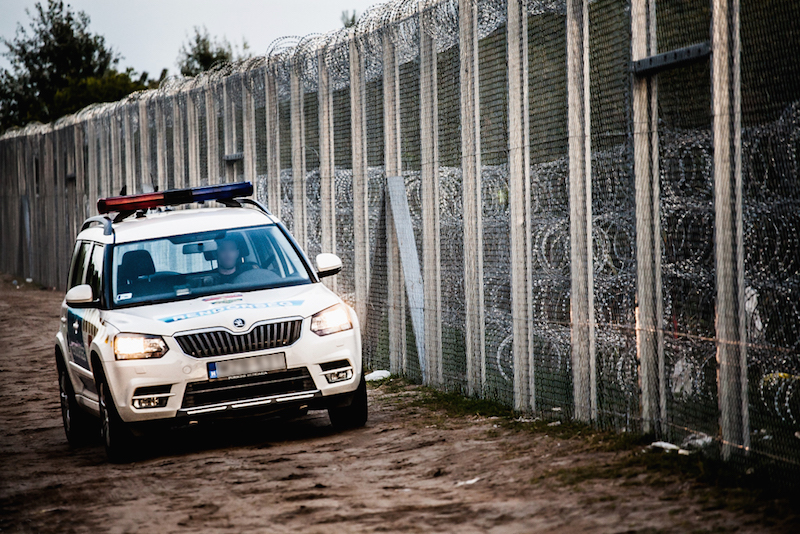For this week’s Editors’ Forum, we asked our NAOC Program Editors the following:
Open borders?
Beyond ‘Imagined Communities’
Lira Loloçi, Program Editor, Global Horizons
Free migration and open borders may seem unrealistic and idealistic at this time, but they’re a worthy goal.
Like feudal barriers to mobility, they protect unjust privilege. Why is it some states have so much wealth while others remain poor? Today’s unequal economic order finds its roots in colonialism, which we must remember when looking at the question of open borders.
Two of the main arguments being made against open borders are that immigration would hurt the economic well-being of citizens in host states, and that immigration would put the culture and society of those states at risk of irreversible change. Let’s consider these further.
To address the first argument, researchers have actually found that overall immigration leads to a rise in the average wage of all workers. Wages depend on the supply of capital as well as labour. Alone, an influx of immigrants would raise the supply of workers and hence reduces wages. But as cheaper labour increases the potential return to employers, building new factories and expanding their production becomes more viable. In doing so, they create extra demand for workers.
Second, the effect immigration would have on a particular culture or society should not be a relevant moral consideration, unless basic liberal-democratic values are threatened. After all, Ben Anderson called nations “imagined communities.” The modern ‘nation’ came about due to the convergence of capitalism and print technology, which, given the fatal diversity of the human language, allowed for new forms of community to be “imagined.”
That’s not to say there’s no value in communal character. Human beings feel attached to their native land, language and culture. But communities are not primordial – they’ve been shifting and evolving ever since humans have existed.
Being forced to leave everything behind is not a choice. To commit ourselves to open borders would not be to abandon the ideal of communal character, but to reaffirm it, at a global level.
To read “Beyond ‘Imagined Communities’ ” in full, click here.
Uncertainty creates Instability
Andi Asimetaj, Program Editor, Canada’s NATO
When considering the possibility of open borders and the free movement of people, many factors have to be taken into account. Do the pros outweigh the cons, and vice versa? We live in a time of uncertainty, and, as such, the value of security outweighs whatever benefits would arise from open borders. Indeed, a borderless world would create uncertainty and chaos.
In light of the terrorist activities that have taken place in Europe and the US, states have been forced to strengthen their borders in fear of further attack. To have open borders, where people move and roam where they please, would make it easier for terrorists to infiltrate and carry out attacks. And an influx of people, leaving their home countries for the wealthy countries, would create an imbalance where home states become desolate while host states are over-burdened.
While it can be argued that borders should not be open to everyone, an exception should be made for people who are trying to escape their war torn countries, such as Syria. The UK is a prime example why having open borders doesn’t work, due to its own citizens having voted to separate from the EU and its open border policy. In an already unequal world, allowing an influx of people to resettle without control would threaten the security of wealthy countries.
The world is divided by religion, society, culture, and wealth – and letting people enter states at will would pose a security risk.
Open borders and ‘preserving our values’
Marissa Young, Program Editor, Women in Security
Trump’s campaign has taken a new turn. In response to slipping polls at an Ohio rally, he announced a values test for prospective immigrants that would ‘assess’ their tolerance towards marriage equality, gender equality, and religious tolerance. Such a test would determine whether prospective immigrants would be accepted. After all, a common argument for keeping borders closed is that uncontrolled migration could pose a threat to America’s liberal-democratic values.
But what exactly are these American values?
Marriage equality was legalized in the US in 2015, with the Supreme Court ruling that the denial of marriage licenses to same-sex couples violated the Fourteenth amendment. The US has been working towards eliminating gender discrimination within the political, economic, and social realms. Last, there was also the 1993 Religious Freedoms Act, meant to protect people from faith-based discrimination.
But the ideological test was framed as a national security issue—to keep out those who could be sympathetic to IS. This framing seemed to please Trump supporters, who’ve followed his xenophobic campaign with fervour.
Yet, would these Trump supporters pass the test themselves? Probably not. Trump’s support is rooted in a broader desire to revert America back to a time where tolerance was dependent on your race, gender, or class. Emphatically chanting to ‘Make America Great Again’ goes against the supposed inclusivity that Trump is trying to test.
There’s a paradox in what Trump says versus how his supporters respond. It’s hypocritical for Americans to impose ‘tolerance’ tests on immigrants while remaining intolerant towards people seeking asylum or a better life. Even more, it puts the argument that immigration should be restricted because it could threaten liberal-democratic values on shaky ground.
Photo: By Bor Benedek via Flickr. Licensed under CC BY 2.0.
Disclaimer: Any views or opinions expressed in articles are solely those of the authors and do not necessarily represent the views of the NATO Association of Canada.




